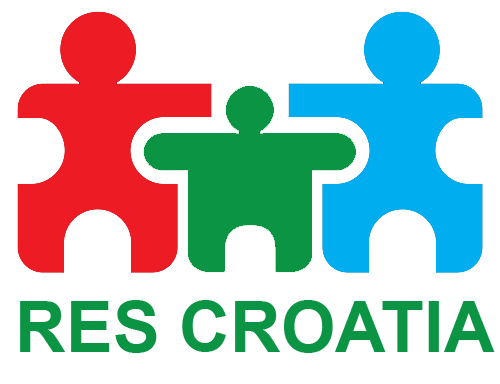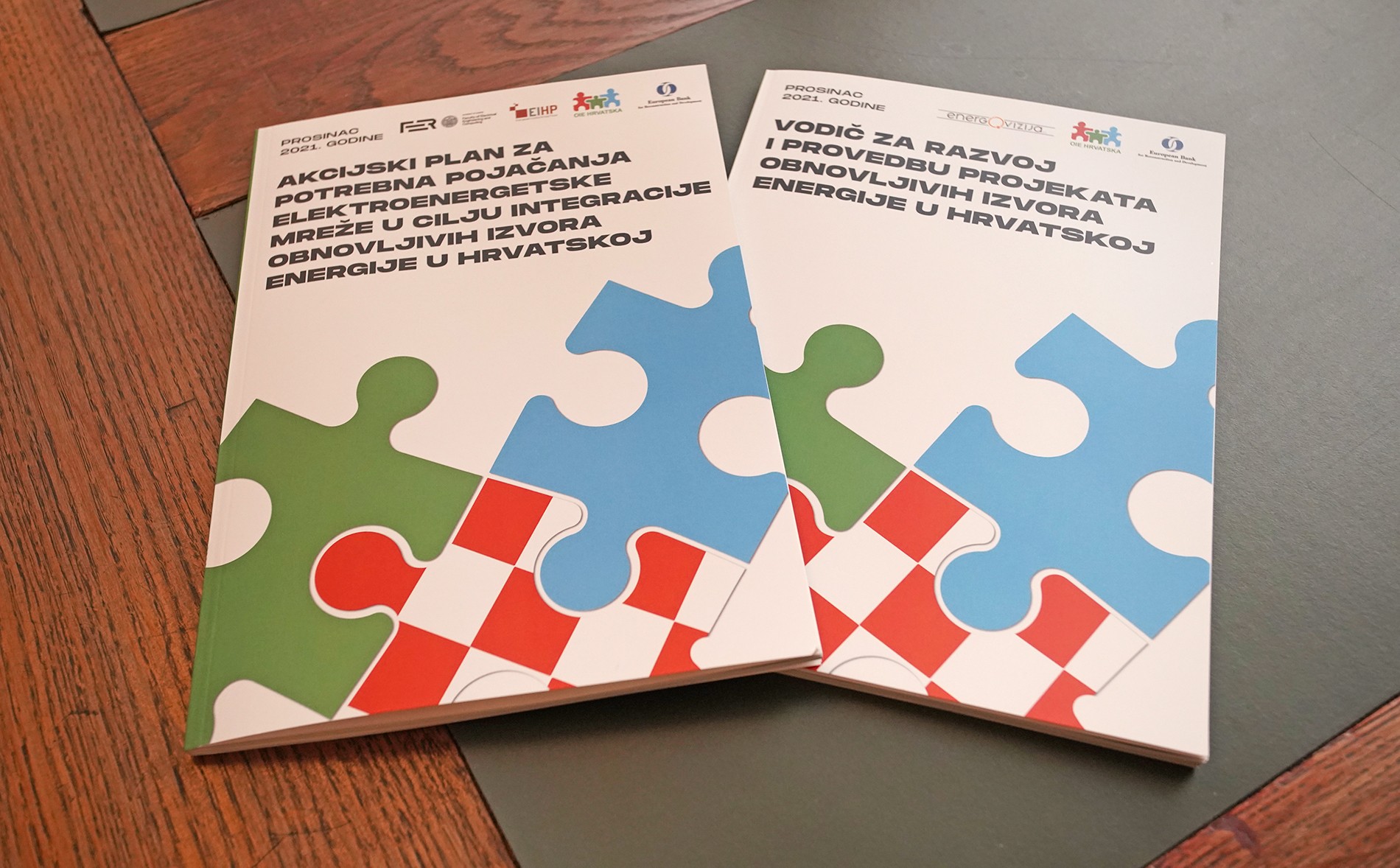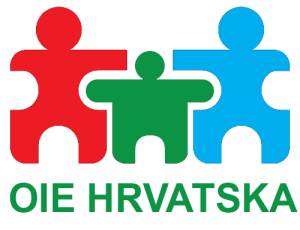The Croatian State Archives hosted the promotion of two expert studies on renewable energy sources in Croatia, initiated by the Renewable Energy Sources of Croatia and financed by the European Bank for Reconstruction and Development in the amount of HRK 1.1 million.
Action Plan for Power Grid Strengthening to Support the Integration of Renewable Energy Sources in Croatia, prepared by experts from the Faculty of Electrical Engineering and Computing of the University of Zagreb and the Hrvoje Požar Energy Institute, and the Guide for the Development and Implementation of Renewable Energy Projects in Croatia group of experts led by the consulting company EnergoVizija, become the basis for investment in renewable energy projects and their integration into the electricity system of the Republic of Croatia and significant support for achieving the goals set by the Energy Development Strategy of the Republic of Croatia until 2030 with a view to 2050.
All over the world, as in Croatia, there is a transition of the energy sector towards cleaner so-called “green technologies”. This is most evident in the electricity sector, where most investments in recent years have been related to the construction of renewable energy sources.
The Director of the European Bank for Reconstruction and Development, Victoria Zinchuk, expressed satisfaction with the preparation of these two studies: “For the EBRD, investing in renewable energy sources is crucial, so we are glad to have the opportunity to work with the Renewable Energy Sources Association of Croatia and other stakeholders in the implementation of these two important projects that will help put Croatia on the investment map of all international and domestic investors. green transition in Croatia”.
The Republic of Croatia has set ambitious goals for a larger share of renewable energy sources and stimulated significant interest in the development and investment in wind and photovoltaic power plants. In order to achieve this, it is important to invest in electricity and regulatory and operational changes. “The Croatian government has improved legislation that facilitates processes, including the recently adopted new Law on the Electricity Market and the Law on Renewable Energy Sources,” said Ivo Milatić, State Secretary at the Ministry of Economy and Sustainable Development. But also that the Government is about to adopt bylaws and implementing acts, while investors and all other stakeholders have a lot of work to do to apply for energy approvals for new capacity to meet the 3,000 MW target for renewable energy sources by 2030.
Action Plan for Power Grid Strengthening to Support the Integration of Renewable Energy Sources in Croatia
“There is probably no area of economic activity in Croatia in which there is greater investor interest than renewable energy sources. More than 200 projects are currently under development, with a total capacity of more than 13,000 MW, representing a total potential investment of probably more than 10 billion euros. Although it is clear that many projects will not be realized in the end, it is still an extremely large and important investment cycle” said dr. sc. Goran Majstrović from the Hrvoje Požar Energy Institute. “Despite the great energy potential and the interest of investors, the realization of projects of this type is relatively weak – in the last 15 years, about 1,000 MW have been built. There are a number of reasons for that, and the connection to the network is one of the three key obstacles for the development of these projects, along with environmental protection and spatial planning” Majstrović added.
Prof. dr. sc. Igor Kuzle from the Faculty of Electrical Engineering and Computing of the University of Zagreb explained: “The entire state energy sector, as well as public utility companies, were mostly unprepared for changes in green technologies, which resulted in significantly fewer projects than planned requires the connection of new production plants in the Croatian power system whose peak (maximum) load is slightly more than 3,000 MW”.
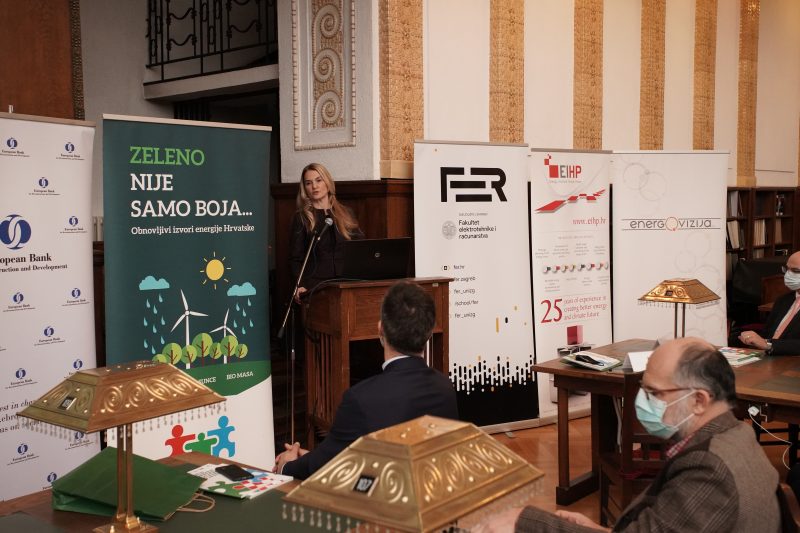
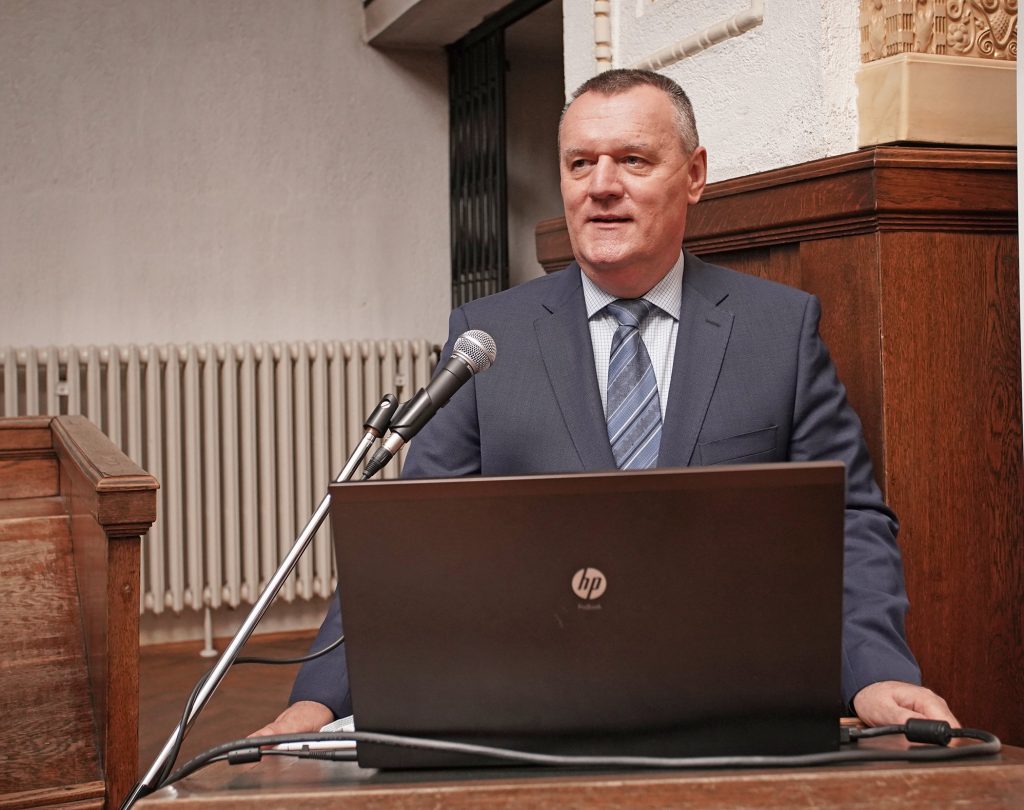






In order to continue the investment trend and better integration of renewable energy sources, significant investments are needed in the construction and modernization of transmission infrastructure. The presented ‘Action Plan for Power Grid Strengthening to Support of the Integration of Renewable Energy Sources in Croatia’ analyzes the current state of the Croatian electricity system and points out the main obstacles to slowing down the integration of renewable energy sources. Croatia imports about 30 percent of its electricity every day, and Croatia has become an exporter of green electricity.
Additional to legislative and regulatory changes, the study contains an action plan for technical, technological and operational measures, where it proposes, among other things, how HOPS and HEP ODS accelerate network reinforcement, network investments required for transmission and distribution network, technical requirements for connection and operation of variable renewables. energy sources and, finally, measures to strengthen human resources and capacity.
Guide for the Development and Implementation of Renewable Energy Projects in Croatia
Interest in the development of renewable energy projects is growing, but there is no central source of necessary information that is important to potential project holders and investors, explained Petra Dropulić Vejin, Director of Operations at EnergoVizija during the presentation of the study Guide for the Development and Implementation of Renewable Energy Projects in Croatia: “Among the biggest obstacles to the development of renewable energy sources in Croatia are licensing procedures and administrative procedures. They are complex, require a large number of permits and take a lot of time, which slows down, complicates and increases the cost of developing renewable energy projects. Therefore, this guide provides answers to frequently asked questions and provides key information on the renewable energy market in Croatia, but also contains proposed measures to accelerate its development. “
“These are the first studies of this kind in Croatia and they are proof of excellence, and this synergy between the economy and the academic community, which is a rarity, has proven to be of exceptional quality,” said mr. sc. Maja Pokrovac, Director of OIEH, expressed satisfaction and gratitude to all collaborators on the project, especially the EBRD, which recognized the importance and need for these studies in Croatia, but also recognized OIEH as a driver of change in the sector. “I am pleased to announce that we at OIEH have launched two new studies on floating power plants and agrosolars, and their development will again be financed by the EBRD,” added Pokrovac.
